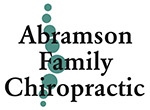Neck Pain Is a Worldwide Problem
In 2020, more than 203 million people worldwide experienced at least one episode of neck pain. Due to a variety of factors, including the aging of the world population, experts estimate that cases of neck pain will increase by 32.5% by 2050, affecting nearly 270 million people. The Lancet Rheumatology, March 2024
Symptoms Linked to Increased Cardiovascular Risks in Menopausal Women
According to a recent study, the combination of migraine and vasomotor symptoms (night sweats or hot flashes, for example) is linked to a more than 50% increased risk for either heart attack or stroke in women undergoing menopause. Menopause Society, February 2024
Sweetened Beverages Linked to Atrial Fibrillation
An analysis of data concerning more than 200,000 adults revealed that consuming more than two liters of either sugar-sweetened or artificially sweetened beverages a week is linked to a 10-20% increased risk for atrial fibrillation diagnosis in the next decade. Meanwhile, drinking a liter a week of pure fruit juice can cut the risk for heart arrhythmia disorder by 8%. Circulation: Arrhythmia and Electrophysiology, March 2024
Isometric Exercises for Lower Blood Pressure
Isometric exercises are performed in static positions using the body’s weight to build strength and stability such as planks, bridges, and wall sits. New research suggests that isometric exercises offer an excellent approach for reducing both systolic and diastolic blood pressure. Mayo Clinic, January 2024
Relationship Between Loneliness and Back Pain in Later Life
Using data from the English Longitudinal Study of Ageing, researchers found that older adults experiencing loneliness had a higher risk for back pain in the following one-to-two years. Likewise, seniors with back pain were more likely to report loneliness in the same time frame. The findings suggest that back pain and loneliness may be risk factors for one another in older adults. Annals of Geriatric Medicine and Research, December 2023
Ergonomic Seat Design May Help Make Mountain Biking Easier on the Back
Researchers report that a new mountain bike seat featuring a raised rear, longitudinal dip, and subtle lateral instability may have a positive effect on muscle activation and pelvic-spine kinematics, reducing the risk for low back pain associated with mountain biking. Sports Biomechanics, February 2024
“I may not have gone where I intended to go, but I think I have ended up where I intended to be.” ~ Douglas Adams
This information should not be substituted for medical or chiropractic advice. Any and all health care concerns, decisions, and actions must be done through the advice and counsel of a health care professional who is familiar with your updated medical history.
